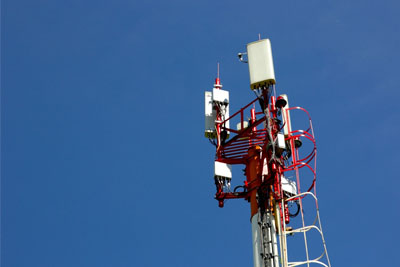Fiber Internet vs. 5G Internet: Which Network Do You Need?

Can’t decide between fiber internet vs. 5G for your home? Discover the key differences and benefits of both internet types in this comprehensive overview.

Can’t decide between fiber internet vs. 5G for your home? Discover the key differences and benefits of both internet types in this comprehensive overview.
Tired of slow downloads, stream buffering, and spotty connections when you try to browse social media? It might be time to say goodbye to your old internet service and treat yourself to an upgrade. These days, most people turn to two possible solutions when they need fast internet: 5G and fiber optic internet.
They’re both fast – but which is better? Today, we’ll do a deep dive into fiber internet vs. 5G internet, explore their pros and cons, and help you choose the best possible internet for your household. Let’s get started!
5G internet and fiber optic internet are types of internet connections. If you have a 5G connection, your device wirelessly communicates with the nearest 5G cellular tower to send and receive data. With a fiber optic connection, your device instead communicates with an in-home router that’s connected to a local network of fiber cables.
Here's a closer look at both internet types and how they work.
“5G” stands for “fifth generation” – in this case, the fifth generation of cellular infrastructure. Not to be confused with 5 Gbps, which would refer to the speed of a given internet connection. 5G internet service requires installing a receiver inside or outside your home, which picks up signals from nearby cell towers.
When you connect to the internet, your device – whether that’s a smartphone, computer, or TV – accesses that cell network through the receiver, ensuring a steady connection. 5G can be thought of as an alternative to traditional wired or broadband internet services.
To get online using your local fiber network, you can hook up devices to your home’s router with an ethernet cable or connect with WiFi. Either way, you get all the benefits of fiber internet since data travels most of the way across fiber optic lines, not through the air like wireless signals.
Fiber internet and 5G internet have one major similarity: they’re both faster than other internet types, like dial-up or DSL. Other than that, they’re very different! Let’s directly compare fiber vs. 5G internet to examine their biggest advantages and downsides.
Fiber internet infrastructure is significantly different from the infrastructure for 5G connectivity.
With fiber internet, a dense collection of underground cables connects homes, businesses, and entire communities to a worldwide network. Because the cables are buried underground, they are insulated from many weather-related factors affecting internet, like extreme temperatures or storm winds. To connect a home to a local fiber network, fiber providers install an NID to the home’s exterior. That external NID then connects to an optical network terminal or “ONT” inside your home to which you can connect your home's router.
5G service infrastructure depends on the maintenance of cellular towers in your area. Those are the same cell towers that allow wireless internet connectivity and other telecommunications through your smartphone when you're on the go. To connect to the 5G network, 5G internet users typically have a fixed receiver installed outside the home, which acts like a short-range connect point for local devices.
Both infrastructure networks can connect you to the internet. However, only the fiber optic infrastructure setup comes with extra dependability and speed.
Speaking of speed, you'll typically enjoy faster internet speeds with a fiber optic internet connection compared to connecting over the 5G network.
On average, fiber internet provides speeds of between 100 and 5,000 Megabits per second (Mbps) – and some internet providers can go even further. On top of that, fiber internet offers symmetrical speeds, meaning your upload speed is the same as your download speed, which is a serious improvement if you need to work from home or like to upload photos to social media.
5G home internet, on the other hand, can only provide speeds of between 30 and 1,000 Mbps. Even if you could guarantee a completely consistent connection through wireless 5G internet – and you can’t – you still won’t get as fast downloads as those you could see with fiber.
Latency, which is how long it takes for data to travel between a sender and a receiver, is certainly better with 5G internet compared to earlier cellular internet networks, such as 4G. That said, average 5G internet latency is higher than the latency experienced by fiber optic internet users.
Lower latency means a speedier overall online experience no matter what activities you like, including online gaming, streaming, and video chatting. Put another way, if you work remotely, compete in online gaming tournaments, or just hate buffering in the middle of your favorite TV show, fiber internet comes with lower latency and a more reliable connection for a better bang for your buck.
When you look at all the factors – like speed, latency, consistency, and user experience – the benefits of fiber internet come out on top. For most homeowners, fiber optic internet is a superior choice through and through, offering faster downloads, greater bandwidth, and an ultimately better service.
Of course, your internet service provider is what can make or break your internet service. Finding the right company that can connect your home, answer questions, and provide trustworthy tech support is crucial.
With high speed, exceptional reliability, and affordability in its corner, fiber internet is the overall best pick for many modern households. And with an ISP like Glo Fiber, you can switch to fiber internet for your home easier than ever!
We offer fiber internet plans with speeds of up to 5 Gbps, plus free installation! Start enjoying symmetrical speeds and direct, consistent connections to the internet today – check your address to begin!